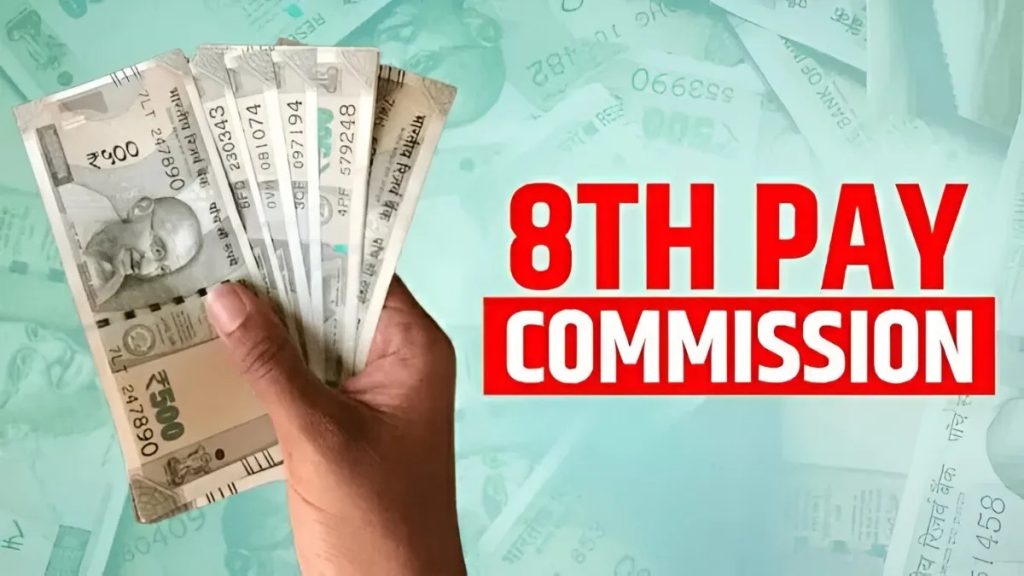The long-awaited revision of pay and pensions for India’s central government staff is now in the spotlight as the 8th Central Pay Commission (8th CPC) draws closer to finalisation. While the official notification is yet to be issued, expert estimates and union demands suggest a possible fitment factor of 2.86, which—if adopted—could translate into an astonishing 186% hike in minimum basic pay and pensions.
What is the fitment factor and why is it important?
The fitment factor is a multiplier applied to the existing basic pay of employees under the current pay commission structure to arrive at a new basic pay under the new commission. For instance:
- Under the 7th CPC, a fitment factor of 2.57 raised the minimum basic pay from ₹ 7,000 (under the 6th CPC) to ₹ 18,000.
- Under the 8th CPC, if the fitment factor becomes 2.86, the minimum basic pay could rise from ₹ 18,000 to about ₹ 51,480.
- Similarly, the minimum pension under the 7th CPC (~ ₹ 9,000) could jump to about ₹ 25,740.
What the “186%” figure means
That jump from ₹ 18,000 to ₹ 51,480 means roughly a 186% increase in the minimum basic pay. However, analysts caution that this number represents “basic pay” only, and does not reflect the full salary including allowances (which may undergo restructuring) or the resetting of Dearness Allowance (DA) and other components.
Timeline, caveats and realistic expectations
- The government formally approved the 8th CPC’s constitution earlier in 2025.
- While a fitment factor of 2.86 is being discussed, many financial analysts estimate a more moderate increase (e.g., 30-35%) corresponding to a lower fitment factor in the range of 1.83 to 2.46.
- The DA component (currently around 55-58% of basic pay) may be merged or recalibrated when the new structure is implemented, which could reduce the “effective” uplift in take-home salary.
- Implementation is expected from 1 January 2026 (for central government employees/employees covered under central pay commission), though actual rollout may be delayed.
Diwali Bonus 2025: Government Announces 10% Bonus, Salary to Double for Employees
Implications for Government Employees & Pensioners
If the higher fitment factor is adopted:
- Entry-level (minimum level) employees could see their basic pay more than double when compared to current levels.
- Pensioners would similarly benefit, with minimum pensions rising significantly, improving post-retirement incomes.
- However, allowances like HRA (House Rent Allowance), TA (Travel Allowance), special allowances, etc., will also have to be re-worked — meaning the net increase may differ from the headline number.
- The fiscal burden on the government will increase sharply; the government will have to balance employee welfare with budgetary constraints.
What to watch for
- The official notification of the 8th CPC, which will specify the terms of reference, appointment of the commission members, and timelines.
- The final fitment factor approved by the government (2.86 is currently a high-end projection).
- How DA, allowance structures and other benefits are handled — e.g., whether DA is merged into basic pay, whether allowances are recalibrated.
- The date of implementation and whether arrears will be paid.
- Whether state government employees (in states that adopt central pay commission frameworks) will receive comparable hikes.
The prospect of a 186% increase in basic pay and pensions for central government employees under the 8th CPC has certainly raised expectations. While the figure is technically possible if a fitment factor of 2.86 is approved, real-world outcomes may differ due to structural changes in allowances and fiscal constraints. Employees and pensioners should remain cautiously hopeful — keeping an eye on the official notification and subsequent guidelines.








